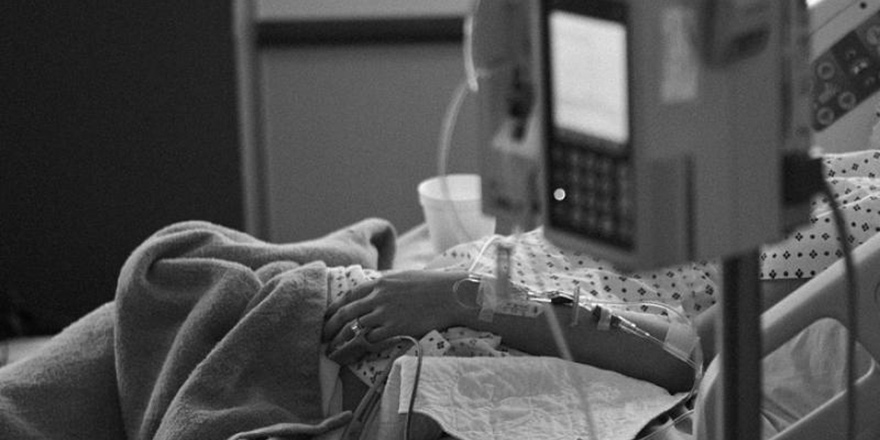
Bir yabancı öğrencinin sağlık sigortası ve poliçesiyle mücadelesi
Öğrenciler de her dönem bunun için ödeme yapmaktadırlar ancak çoğu yaptıkları bu ödemeden haberdar değildir.
Chidume Martins
Sağlık sigortası, sigortalının karşılaştığı tıbbi ve cerrahi masrafları karşılayan bir sigorta türüdür. Sağlık sigortası hastalık ya da yaralanma nedeniyle sigortalının ödemek durumunda kaldığı masrafı geri öder ya da doğrudan sağlık hizmetini sağlayanı öder. Kıbrıs’ın kuzeyindeki kurumlar, güvenli bir sağlık sistemi güvencesi ile öğrencileri cezbetmek için sağlık sigortası sunmaktadırlar. Doğu Akdeniz Üniversitesi, adanın önde gelen bir üniversitesidir ve öğrencilerine yönelik sağlık sigortası sunmaktadır. Öğrenciler de her dönem bunun için ödeme yapmaktadırlar ancak çoğu yaptıkları bu ödemeden haberdar değildir. Kıbrıs’ın kuzeyindeki bu üniversiteler öğrencileri, bu poliçelerin varlığı ve kapsamları konusunda bilgilendirmemektedirler. Aşağıda, görüşülmüş olan öğrencilerin gerçek hayatta yaşadıkları deneyimlerden örnekler yer alır.
Bu mülakatlardan da görülebileceği gibi, yetersiz bilgi ve yetersiz danışmanlık yöntemleri, yeterince insana ulaşılamama ve yeterli duyuru yapılmamasından kaynaklanan problemlerin aşılmasına ihtiyaç vardır. Üniversite makamlarının öğrencilere özellikle önemli bir konu olan sağlık sigortasıyla ilgili yol göstermesi gerekir.
Gerçek hayattan örnekler
- Anonim:
Nijerya’dan adaya geldikten sonra yavaş yavaş bir yoğunluk içine girdim. Kayıt yaptırdım ve derslere gitmeye başladım. Bir hafta kadar sonra okul ve ortama uyum sağlama çabasının yarattığı stresten dolayı derimde kızarıklık ve kabuklanma başladı. Yardım almak için sağlık merkezine gittim. Benden teşhis konulabilemsi için devlet hastanesinde bazı testler yaptırmam istendi.Oraya vardıktan sonra tüm testlerin o hastanede yapılamayacağını öğrendim vebazı testleri dışarda yaptırmam gerekti.Devlet hastanesinde yaptırdığım test bedavaydı ama öyle olduğunu bilmiyordum. Okul dışında yaptırdığım geriye kalan testler için ücret ödemem gerekti veçok pahalıydılar. Bir sağlık poliçesi için halihazırda ödeme yaptığımı bilmediğimden doktorun yazdığı ilaçların parasını da ödedim.Param neredeyse bitmişti. Ben de bilgi almak üzere yabancı öğrenci ofisine gittim. Orada bana bir sağlık sigortam olduğu söylendi. Böyle birşey için ödeme yaptığımı bile bilmiyordum. Bana sigortanın dar kapsamlı olduğu ve özel sağlık hizmetlerini kapsamadığı belirtildi. Sağlık sigortası primlerini ödeyen öğrenciler Sağlık Bakanlığı’na bağlı poliklinik ve hastanelerdeki tüm muayene (laboratuvar, x-ray) ve konsültasyondan hizmetlerinden ücretsiz yararlanabiliyorlardı. Ancak daha ileri görüntüleme(MRI ve CT), ilaç ve tedavi için gerekli diğer cihazlar için öğrencinin ödeme yapması gerekmekteydi. Şaşırmıştım.Birçok öğrenci mezun olana kadar bunu bilmiyor bile ve bu arada da sağlık hizmetleri için çok para harcamış olabilirler. Bu bilginin doğruluğundan emin olabilmek için sağlık merkezinin websitesine baktım. Okulun öğrencilere sağlık sigortası poliçesi hakkındayeterince bilgilendirme yapmamış olması bana büyük bir hayalkırıklığı yaşattı.
Bu, yabancı öğrencilerin yaşadığı durumlardan yalnızca bir tanesidir. Üniversitelerin sağlık sigortasıyla ilgili öğrencileri bilgilendirmesi gerekir. Yabancı öğrenci oficisi de sağlık sigortasının faydaları hakkında bilgilendirici kampanya yapması gerekir.
Mesela ABD, Kanada ve birçok AB ülkesi gibi gelişmiş ülkelerde farklı kategorilerde sağlık sigortası ya üniversiteler ve hükümet işbirliği ya da üniversiteler aracılığıyla bilgisi sağlanan özel firmalarca sunulur. Bunlar arasında aşağıdakiler de yer alır ancak bunlarla sınırlı depğildir:
- Hastane Sigortası (Kısım A) maaştan karşılanır. Hastanelerde yataklı tedavi ve kısa dönemli hasta bakım ile palyatif bakımı içerir.
- Tıbbi Sigorta (Kısım B) aylık primle karşılanır. Genel doktor hizmetlerini, ayakta tedavi ve tıbbi olarak gerekmesi halinde bazı fizik tedavi ve meslek hastalıkları terapisti hizmetlerini içerir.
- Reçeteli İlaç (Kısım C) aylık primle karşılanır ve reçeteli ilaçların daha makul maliyetli olmasına yardımcı olmak ve maliyetleri düşürmek için tasarlanmıştır. Bu sigortayı özel şirketler sunar.
Üniversiteler farklı sigorta poliçeleri sunmalıdırlar. Öğrenci sağlık sigortası zorunlu olan genel hizmetlerle sınırlı olmamalı; adaya gelmeden önce arzu eden öğrencilere poliçe kapsamını genişletme fırsatı tanınmalı.
Her öğrenciye böyle bir poliçe alıp almama seçeneği tanınmalı. Bu, sağlıkla ilgili masrafa giren öğrencilerin stresini hafifletecektir. Aynı zamanda da öğrencilerin sağlık hizmetlerine çok para harcamalarını engelleyecektir.
An international student struggles with health insurance and it policies.
Chidume Martins
Department of Molecular Biology and Genetics, EMU.
Nigerian Student Society
Health insurance is a type of insurance that pays for medical and surgical expenses incurred by the insured. Health insurance can reimburse the insured for expenses incurred from illness or injury, or pay the care provider directly. Health insurance is provided by institutions in northern Cyprus as a way of enticing the students with proof of secure health care. Eastern Mediterranean university; a leading university on the island, provides insurance policy for its students. Individual students pay for this insurance every semester but most have no knowledge about the payment they have made. These universities in northern Cyprus fail to inform their students about the availability of such policies and what it entails. Below are examples of real life experiences of some students interviewed.
As these interviews will show, there is a need to overcome problems associated with poor information and poor advisory methods, low outreach and lack of adequate publicity. University authorities should provide guidance to the students especially on the significant issue of health insurance.
Real life examples
Anonymous :
On arrival on the island from Nigeria, I gradually got into the thick of things, got myself registered and started attending classes. About a week later after, due to the stress of coping with school and trying to fit in, I started developing rashes and flaky skin. I visited the health centre in the clinic to get help. I was asked to do some tests at the general hospital to confirm my illness. After I got there, I found out that not all tests could be done in the hospital and so I had to do some tests outside. The test I did at the general hospital was free but I did not know this. I had to pay for the remaining tests outside the school that were quite expensive. Since I was not aware that I had paid for a health policy, I also paid for the drugs I was prescribed to get by the doctor. I was going broke and without money so I went to the international office for information. There, I was informed that I had a health insurance policy which I never knew I paid for and also that it has a limited coverage and does not cover private practice. Students who pay insurance premiums can benefit from the consultation and examination (lab, x-rays) services in all polyclinics of hospitals under the Ministry of Health and Welfare free of charge. However, advanced imaging (MRI and CT), drugs and other apparatus required for treatment will be paid by students. I was surprised by this. Most students do not have any idea about this till they graduate and they may have spent exuberantly on healthcare. I had to go to the health centre website to be sure of this information. I was really disappointed that the school had not advertised enough to enable students to have an idea of this health policy.
This is one of the many stories international students face. Universities are meant to inform students about their health insurance. International office should also carry out publicity campaigns on the benefits of health insurance.
For example in developed countries like the US, Canada and most countries in the European Union, there are different categories of health insurance provided by either the universities in conjunction with the government or by private companies whose information are made available by the universities .They include but are not limited to:
- Hospital Insurance (Part A) is covered through your payroll. It covers in-patient care in hospitals, short-term nursing facilities and hospice care.
- Medical Insurance (Part B) is covered by a monthly premium. It covers general doctor’s services, outpatient care and some services of physical and occupational therapists when they are medically necessary.
- Prescription Drug Coverage (Part C) is covered by a monthly premium and is designed to help make prescription drugs affordable and lower the costs. Private companies provide this insurance.
The universities should make available different type of insurance policies. Health insurance should not be limited to the general ones for students which are compulsory, to provide the opportunity to students who wish to extend their insurance coverage before arrival on the island.
It should be optional for each individual student to take such policy. This will relieve stress on students who are paying for health related bills. It will also aid in preventing students from spending much on health services.



















